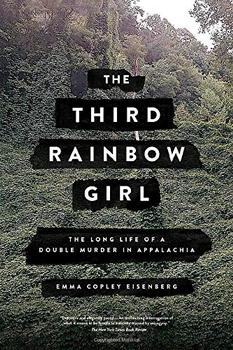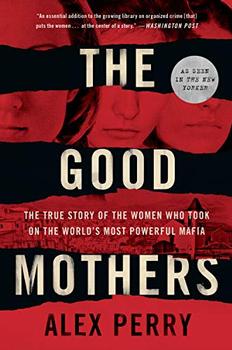Summary | Excerpt | Reviews | Beyond the book | Read-Alikes | Genres & Themes | Author Bio

A Love Lost to Violence and a Young Man's Descent into Madness
by Eli SandersIt would be hard to say who exhibited the greater degree of madness: the deeply troubled and homicidal young man whose unthinkably brutal crimes stand at the heart of While the City Slept, or the public officials who sat by and allowed – even advocated – for the slashing of $4.3 billion from state mental health budgets across the United States from 2009 to 2012. Readers of Eli Sanders' hair-raising narrative will be hard-pressed to answer that question as well.
On the heels of the 2008 U.S. financial crisis, states scrambled to find ways to balance their budgets. Though there is usually little political price to pay for doing so on the backs of the poor and the dispossessed, this wholesale slashing of mental health services often wrought dire human consequences. The fallout from such politically craven decisions is now being felt not only by the thousands of families whose lives have been upended by this callous calculation but also by Americans at large whose sense of insecurity and vulnerability has been exacerbated by the widely reported instances of mentally ill individuals committing acts of violence in schools, workplaces, and public spaces.
Eli Sanders' While the City Slept: A Love Lost to Violence and a Young Man's Descent into Madness does several things, all of them superbly. First, it tells the story of a handful of people: how they grew, what they loved, what they needed, how they found (or didn't) the people to meet those needs, and the impact they had on the communities around them. Sanders, who won a Pulitzer Prize for the reporting out of which this book grew, is extremely sure-handed in his recreations of the lives, loves, and losses of his protagonists. The book is also a superb, pulse-pounding retelling of a gruesome crime and trial stemming from a rape and murder in a sleepy Seattle suburb in the summer of 2009. Finally, it's a searing indictment of the mental health system in the United States, showing step-by-step how the failure of an overworked, underfunded bureaucracy led to a likely preventable human tragedy.
"Advocates continue to argue that it's shortsighted and self-defeating for political leaders to continually cut, and perpetually underfund, public mental health programs in this country while much more easily approving funds for things like new prisons," Sanders writes, "Simply having a few counseling sessions during his parents' divorce proceedings, as was recommended by the Family Court social worker, might have changed the course of events for Isaiah."
The Isaiah in question is the titular "Young Man" in the book's subtitle, and his rapid and violent descent into madness is painful to witness. From his earliest years, teachers, social workers, and eventually the police came to recognize Isaiah Kalebu's troubled mental state, yet he kept slipping through the cracks: not enough evidence of imminent danger to himself or others; criminal charges dismissed by an overburdened court system; family members' concerns not taken seriously by police; and a neighborhood that had become frightened of his aberrant behavior, though lacking the clear-cut evidence needed to involuntarily commit him for treatment.
But this book is anything but a dry-eyed policy analysis. Quite the contrary. Sanders quickly gets the blood pumping in the prologue as he recreates how the desperate screams of two women who had been victimized by Kalebu for hours, shattered the quiet July night of the lower-working class neighborhood of South Park just outside Seattle. What neighbors first found when they dashed into the street at 2 a.m. – and police investigators later collected – testified to an almost unimaginable human horror of torture, sexual sadism, and homicide.
Sanders' clear-eyed but often poetic attempts at placing small, seemingly isolated events in a larger context are moving and mesmerizing. In the prologue, as he wrestles with how to even get his arms around the story he's about to tell, he notes that:
The tributaries that feed a moment are vast. At the riverside, countless water molecules in motion and the din of the surrounding city. It could be concluded, standing there, that a very beginning for what occurred on South Rose Street will never be located...Even so, some stories are worth assembling. Some crimes cry out for an accounting. Some offenses indict so much, and reflect so much, that they demand attention – to what was taken, to the taker, to the trials that preceded and followed."
In his search for a beginning, Sanders tells the life stories of Teresa Butz and Jennifer Hopper, two women from different parts of the country who eventually found each other – first in Seattle and, ultimately, at the blade's edge of Kalebu's wrathful mania. Sanders also reconstructs, brick by crumbling brick, the foundation of Kalebu's unstable childhood at the hands of violent and mentally distressed immigrant parents. Watching Butz, Hopper, and Kalebu's lives unfold is grimly fascinating. For two hundred pages, Sanders has been surreptitiously empaneling readers as jurors for the coming trial, who by then, can't beg to be excused from bearing witness to the final act in the courtroom: "In a building filled with horrors enacted by one human upon another, this courtroom was about to go well beyond the norm, beyond what most people are brave enough to imagine, let alone recount."
Every public official in a position to effect change in the mental health system ought to read this book and reflect deeply on its lessons. The rest of us can simply be moved to the tears summoned by the enduring love, tentative hope, and inconsolable pain of this searing human tragedy.
![]() This review was originally published in The BookBrowse Review in March 2016, and has been updated for the
February 2017 edition.
Click here to go to this issue.
This review was originally published in The BookBrowse Review in March 2016, and has been updated for the
February 2017 edition.
Click here to go to this issue.

If you liked While the City Slept, try these:

by Emma Copley Eisenberg
Published 2021
A stunningly written investigation of the murder of two young women--showing how a violent crime casts a shadow over an entire community.

by Alex Perry
Published 2019
The electrifying, untold story of the women born into the most deadly and obscenely wealthy of the Italian mafias – and how they risked everything to bring it down.
Your guide toexceptional books
BookBrowse seeks out and recommends the best in contemporary fiction and nonfiction—books that not only engage and entertain but also deepen our understanding of ourselves and the world around us.